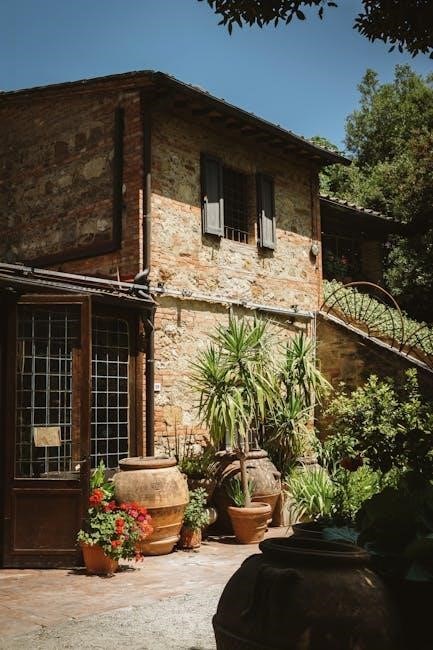Kill Move Paradise, a play by James Ijames, explores the surreal journey of four Black men stuck in a cosmic waiting room after death. Inspired by real-life tragedies, it delves into identity, vulnerability, and justice through their stories;

Plot Summary
Kill Move Paradise follows four Black men—Isa, Daz, Grif, and Tiny—as they find themselves in a surreal, cosmic waiting room after death. This liminal space, inspired by the Hindu concept of the bardo, serves as a transition between life and the afterlife. The characters must confront their past actions and the circumstances that led to their deaths, grappling with the harsh realities of their lives and the systemic violence that cut them short. Through their interactions, the play reveals their unique personalities and shared struggles, blending humor, vulnerability, and introspection. The narrative unfolds in a stark, blindingly white environment with a perilous slope and a portal, symbolizing the unknown and the challenges of their new existence. The play ultimately explores themes of identity, justice, and transformation, urging both characters and audience to reflect on the value of Black lives and the need for change.
Themes and Symbolism
Kill Move Paradise explores themes of identity, vulnerability, and systemic violence, using the waiting room as a metaphor for transition and reckoning. It reflects on the value of Black lives and societal injustice.
3.1 The Waiting Room as a Metaphor
The waiting room in Kill Move Paradise serves as a powerful metaphor for the liminal space between life and death, reflecting the characters’ unresolved journeys. This surreal environment, inspired by the Hindu concept of the bardo, symbolizes a transitional realm where the deceased confront their past actions and the circumstances of their deaths. The waiting room’s design, with its blindingly white and perilous slope, creates a sense of disorientation and vulnerability, mirroring the characters’ emotional states. By trapping the four Black men in this space, the play highlights the systemic injustices that led to their deaths, turning the waiting room into a symbol of societal failure and the need for reckoning. Through this metaphor, Ijames critiques the violence against Black bodies and invites the audience to reflect on the broader implications of racial injustice and the search for hope and transformation in the face of tragedy.
3.2 Character Interactions and Past Experiences
The interactions between Isa, Grif, Daz, and Tiny in Kill Move Paradise are deeply rooted in their past experiences, which slowly unfold as the play progresses. Each character’s dialogue reveals fragments of their lives, exposing the trauma, pain, and systemic injustices they faced as Black men in America. Their conversations are laced with tension, vulnerability, and camaraderie, creating a complex web of relationships that highlight their shared humanity. The characters’ interactions also serve as a catalyst for introspection, forcing them to confront the circumstances of their deaths and the societal structures that led them to this liminal space. Through their exchanges, the play underscores the resilience and strength of these individuals, even as they grapple with the weight of their pasts. The dynamics between the characters not only drive the narrative but also illuminate the broader themes of identity, justice, and redemption.

Character Analysis
In Kill Move Paradise, the characters of Isa, Daz, Grif, and Tiny are intricately crafted to embody the complexities of Black identity and the weight of their collective past. Isa, the central figure, emerges as a symbol of vulnerability and resilience, his interactions with the audience and other characters revealing a deep-seated need for connection and understanding. Grif, with his sharp wit and cautious demeanor, serves as a counterbalance to Isa’s openness, while Daz’s brash confidence hides a layer of pain and regret. Tiny, despite his imposing physical presence, exudes a quiet introspection, his gentle nature contrasting with the harsh realities of his past. Each character’s dialogue and behavior are shaped by their unique experiences, reflecting the broader themes of systemic injustice and personal redemption. Through their distinct voices, the play humanizes the statistics of violence against Black men, offering a poignant exploration of their lives, losses, and legacies. The characters’ arcs underscore the play’s message of hope and transformation amidst tragedy.

Cultural and Social Relevance
Kill Move Paradise is a powerful exploration of race, identity, and systemic injustice, resonating deeply with contemporary social issues. Inspired by the tragic losses of unarmed Black men and women, the play sheds light on the ongoing struggle for justice and equality. By placing its characters in a surreal afterlife, the narrative humanizes those often reduced to headlines, emphasizing their humanity over their deaths. The play challenges audiences to confront the harsh realities of racism and violence, fostering empathy and understanding. Its themes of resilience and hope offer a counter-narrative to despair, urging collective action and transformation. Kill Move Paradise serves as a catalyst for crucial conversations about systemic oppression and the value of Black lives, making it a culturally significant work in today’s social landscape. Its relevance lies in its ability to provoke reflection and inspire change, aligning with the broader movement for racial justice.
Theatrical Style and Structure
Kill Move Paradise features a distinctive theatrical style that blends surrealism with stark minimalism. The stage is transformed into a blindingly white, perilous slope with a portal, symbolizing a transitional space between life and death. This design creates an otherworldly atmosphere, enhancing the play’s themes of liminality and existential questioning. The narrative structure is non-linear, with characters’ past experiences interwoven into their present dialogue. Director Blanka Zizka’s vision emphasizes expressive movement and intimate character interactions, drawing the audience into the cosmic waiting room. The play’s expressionistic tone allows for emotional depth, while its abstract setting mirrors the characters’ disorientation. This theatrical approach underscores the play’s exploration of identity, justice, and the afterlife, making it a visually and narratively compelling production. The use of space and light reinforces the play’s symbolic and emotional layers, creating a haunting yet thought-provoking experience.
Reception and Reviews
Kill Move Paradise has garnered critical acclaim for its powerful exploration of justice, identity, and the Black experience. Audiences and critics alike have praised its haunting yet thought-provoking narrative, which resonates deeply in today’s societal context. The play’s surreal and visually stunning staging has been highlighted as a standout feature, creating an immersive experience that lingers long after the performance ends. Many reviewers have commended its ability to spark necessary conversations about systemic injustice and the value of Black lives. The Wilma Theater’s production, directed by Blanka Zizka, was particularly well-received, with praise for its bold theatricality and emotional depth. The play has also been recognized for its educational potential, making it a significant work for both theatrical and academic settings. Its impact continues to grow as it challenges audiences to confront uncomfortable truths and reflect on the human condition. The play’s reception underscores its relevance and importance in contemporary theater.

Inspirations and Influences
Kill Move Paradise draws inspiration from the ever-growing list of unarmed Black men and women whose lives have been tragically cut short. Playwright James Ijames was deeply moved by these real-life events, using them as a catalyst to explore themes of justice, identity, and the resilience of the Black community. The play’s surreal setting, a cosmic waiting room, is influenced by the Hindu concept of the bardo, a transitional space between life and death. Ijames also draws parallels to the Elysian Fields of Greek mythology, reimagining them as a space for reflection and reckoning. The work was further shaped by Ijames’ participation in the IGNITION Festival of New Plays at Victory Gardens Theater, where it was developed. Stylistically, the play incorporates elements of Expressionism, creating a dreamlike atmosphere that amplifies its emotional impact. These influences blend to create a powerful commentary on race, vulnerability, and the search for meaning in the face of injustice.
Educational and Performative Value
Kill Move Paradise serves as a powerful educational tool, offering insights into the Black experience and social justice issues. Its performative style, blending Expressionism and direct audience interaction, creates an immersive experience that challenges viewers to confront uncomfortable truths. The play’s use of a cosmic waiting room as a metaphor for liminality facilitates discussions about identity, mortality, and systemic oppression. In educational settings, it provides a platform for exploring themes of race, vulnerability, and resilience, while encouraging critical thinking and empathy. The play’s development through initiatives like the IGNITION Festival highlights its role in fostering new voices and innovative storytelling. Performances at theaters such as the Wilma Theater have further amplified its impact, making it a significant work for both theatrical study and community engagement. By addressing timely issues through a unique artistic lens, Kill Move Paradise enriches both academic and theatrical discourse, offering valuable lessons for audiences and performers alike.
Kill Move Paradise is a poignant and thought-provoking play that resonates deeply with its audience. By addressing the tragic reality of unarmed Black individuals lost to violence, James Ijames creates a narrative that is both haunting and hopeful. The play’s unique setting in a cosmic waiting room serves as a metaphor for the liminal spaces Black men often occupy, caught between life and death, justice and injustice. Through its exploration of identity, vulnerability, and collective transformation, Kill Move Paradise challenges societal norms and sparks necessary conversations. Its theatrical style, blending Expressionism and audience interaction, adds to its emotional impact. As a work inspired by real events, it stands as a tribute to those who have been lost and a call to action for a more just future. Ultimately, the play’s ability to balance grief with resilience makes it a significant contribution to contemporary theatre and social commentary.